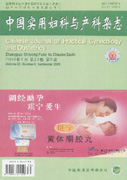|
Menopausal hormone replacement therapy and breast cancer risk.
RUAN Xiang-yan,ZHANG Ling-yan
2020, 36(3):
213-217.
DOI: 10.19538/j.fk2020030107
It is well known that breast cancer is a hormone-dependent tumor and the most common malignancy in women worldwide.Although menopause is a natural phenomenon,it can cause many pathological results,seriously affect women's quality of life,and increase the occurrence of various chronic diseases.Menopausal hormone replacement therapy(MHT)is one of the most effective treatments for menopausal symptoms,but hormone and breast cancer risk is the most feared issue for most women.The relationship between hormones and breast cancer has been controversial for decades,with the initial women's health initiative(WHI)results published in 2002 reporting an overall increased risk of breast cancer; A recent research has found that MHT,in addition to vaginal estrogen,is associated with an additional risk of breast cancer,which steadily increases over time.Compared with estrogen,estrogen-progesterone has a greater risk.This article will focus on MHT and breast cancer risk.
|

